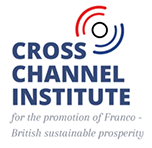
France: sharp contraction in economic activity in June, risk of recession “materialises”.
The spectre of recession once again looms over France. The Flash composite index, published by S&P Global, which measures private sector activity, stood at 47.3 in June, compared with a slightly lower revised reading of 51.2 in May, reaching a low point since February 2021 and ending four consecutive months of expansion. A value above 50 is synonymous with an expansion in activity, while a value below this threshold is synonymous with contraction.
A deterioration in the services sector
This sharp fall in the index is due above all to the deterioration seen in the services sector (48 in June compared with 52.5 in May). Among the reasons given for the decline in activity in the survey, which was conducted among a representative panel of 750 companies, were inflation, tighter financial conditions and even company closures. The decline in manufacturing output, which began in mid-2022, continued (44.2 in June compared with 44.7 in May).
“The latest ‘PMI Flash HCOB’ data do not paint as encouraging a picture of the French economy as the one painted in recent months,” commented Norman Liebke, economist at Hamburg Commercial Bank, which publishes the index with S&P Global. In his view, “the risk of a recession materialising is increasing”.
Businesses’ confidence that their business will grow over the next twelve months is also at a low. It is at its lowest level since May 2020, despite the fact that in June inflationary pressures eased and employment in the services sector grew.
The entire eurozone is affected
While France recorded its weakest performance in June, all the other countries were affected by these poor figures. Private sector growth in the eurozone slowed sharply in June, falling to a level close to zero, weighed down by the difficulties in industry, according to the “PMI Flash” index published by S&P Global.
It fell to 50.3 in June, after 52.8 in May, the lowest level for five months, “signalling a very sharp slowdown in economic growth in the region”, explained S&P in a press release. After three months of strong expansion, growth has virtually stagnated in Germany.
Employment growth has slowed and the 12-month outlook for activity has deteriorated. The only good news is that the economic slowdown has been accompanied by a sharp easing in inflationary pressures. “Prices paid and prices charged by businesses recorded their smallest increases since December 2020 and March 2021 respectively”, the press release states.
Source: La Tribune.
